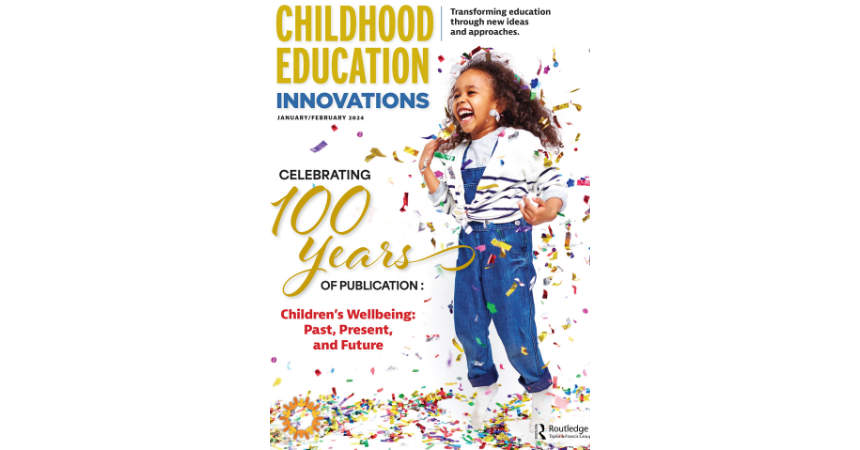Celebrating 100 Years of Childhood Education Innovations


Childhood Education International is excited to celebrate 100 years of our publication Childhood Education Innovations, which explores innovative solutions to specific education challenges around the world.
The January/February 2024 issue celebrates 100 years of publication and features articles that provide a lens on children’s wellbeing in the past, present, and future.
Childhood Education Innovations is available by subscription. We also make two articles in each issue free and available to the public for a period of time after publication.
APPLE Schools collaborates with vulnerable school communities across Canada to improve students’ lifelong wellness habits.
The HOPE National Resource Center transforms systems to create a research-based structured approach to care through positive childhood experiences (PCEs).
A school in Australia follows a holistic approach that integrates positive psychology principles and evidence-based practices into every aspect of school life.
For educators to effectively model and teach SEL, they need to possess social and emotional competencies themselves.
Climate Resiliency Fellows connect, collaborate, and support each other; draw inspiration from invited speakers, ranging from artists to climate scientists; and have dedicated time to work on their own projects.
Africa Education & Leadership Initiative works with refugee youth to increase their ability to achieve their dreams and reach their potential.
Katie-Jay Scott was a humanitarian activist who demonstrated unfaltering commitment to refugee children and their overall wellbeing.
Sozo Kurahashi’s spirit of education and care has supported the daily work of many Japanese practitioners.
Mr. Rogers’ Neighborhood offers a well of wisdom about child wellbeing by promoting healing, gratitude, forgiveness, and acceptance of others.
Open-ended questions from adults not only model inquiry-based language but also present opportunities for children to engage in critical thinking and problem-solving.
We must embrace assessment models that bolster a wider set of social and interpersonal skills, allow creative ways to demonstrate those skills, and encourage students to work at their own pace.
Learn more about Childhood Education Innovations and subscribe now to access all the articles.